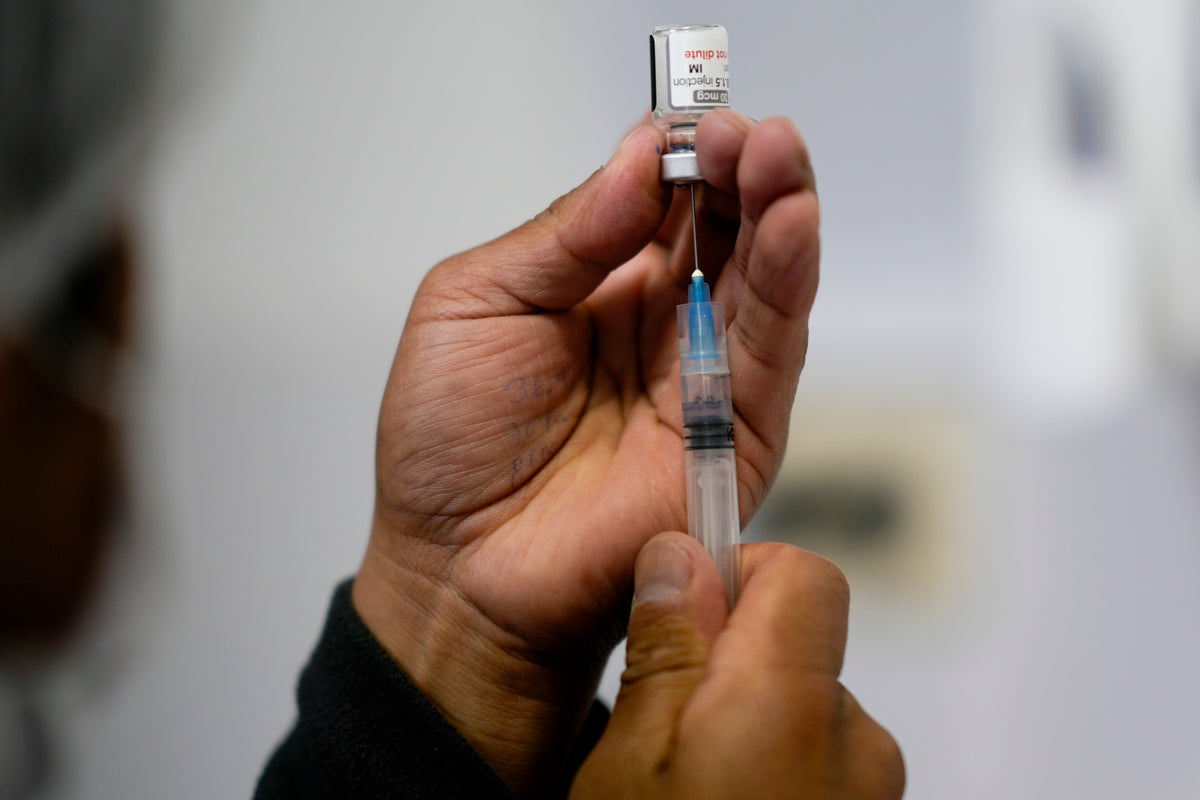Health
Over 14 Million Children Miss Vaccines Globally, Warns UN

More than 14 million children around the world did not receive a single vaccine in 2024, according to a concerning report from the United Nations. This figure aligns closely with the previous year’s statistics, indicating a troubling stagnation in global vaccination efforts. The report highlights that nine countries are responsible for over half of these unvaccinated children, which raises significant public health concerns.
In their annual evaluation of global vaccine coverage, the World Health Organization (WHO) and UNICEF noted that approximately 89 percent of children under one year old received the first dose of the diphtheria, tetanus, and whooping cough (DTP) vaccine in 2024, mirroring the coverage from 2023. While the completion rate for the three-dose series increased slightly to 85 percent, officials warned that a decline in international aid could jeopardize this progress.
Policy shifts in the United States have exacerbated the situation. In January, former President Donald Trump withdrew the country from the WHO and froze nearly all humanitarian aid. Recently, Health Secretary Robert F. Kennedy Jr. announced substantial cuts to funding for Gavi, the vaccine alliance, claiming the organization had “ignored the science.” Kennedy, known for his skepticism towards vaccines, has questioned the safety of the DTP vaccine, despite its established safety and efficacy.
Tedros Adhanom Ghebreyesus, WHO Director-General, stated, “Drastic cuts in aid, coupled with misinformation about the safety of vaccines, threaten to unwind decades of progress.” UN experts emphasized the severe inequality in vaccine access, particularly in regions affected by conflict and humanitarian crises.
Countries such as Nigeria, India, Sudan, Congo, Ethiopia, Indonesia, Yemen, Afghanistan, and Angola account for 52 percent of the total unvaccinated children. Sudan reported the lowest DTP coverage, highlighting the urgent need for targeted interventions in these regions.
While global measles vaccination coverage saw a slight rise, with 76 percent of children receiving both doses, experts argue that achieving 95 percent coverage is crucial to prevent outbreaks of this highly contagious disease. The WHO reported that 60 countries experienced significant measles outbreaks last year.
The United States is currently facing its most severe measles outbreak in over three decades, while Europe reported 125,000 cases in 2024, double the previous year’s figures. In the UK, health authorities recently confirmed the death of a child from measles in a Liverpool hospital. Despite ongoing awareness campaigns, only about 84 percent of children in the UK are fully vaccinated.
Helen Bradford, a professor of children’s health at University College London, expressed her concern, stating, “It is hugely concerning, but not at all surprising, that we are continuing to see outbreaks of measles. The only way to stop measles spreading is with vaccination. It is never too late to be vaccinated — even as an adult.”
Vaccines are crucial in preventing an estimated 3.5 million to 5 million deaths annually. The current vaccination landscape underscores the need for renewed commitment to equitable healthcare access and the importance of maintaining global vaccine initiatives.
-

 Entertainment3 months ago
Entertainment3 months agoAnn Ming Reflects on ITV’s ‘I Fought the Law’ Drama
-

 Entertainment4 months ago
Entertainment4 months agoKate Garraway Sells £2 Million Home Amid Financial Struggles
-

 Health3 months ago
Health3 months agoKatie Price Faces New Health Concerns After Cancer Symptoms Resurface
-

 Entertainment3 months ago
Entertainment3 months agoCoronation Street’s Carl Webster Faces Trouble with New Affairs
-

 Entertainment3 months ago
Entertainment3 months agoWhere is Tinder Swindler Simon Leviev? Latest Updates Revealed
-

 Entertainment4 months ago
Entertainment4 months agoMarkiplier Addresses AI Controversy During Livestream Response
-

 Science1 month ago
Science1 month agoBrian Cox Addresses Claims of Alien Probe in 3I/ATLAS Discovery
-

 Health4 months ago
Health4 months agoCarol Vorderman Reflects on Health Scare and Family Support
-

 Entertainment4 months ago
Entertainment4 months agoKim Cattrall Posts Cryptic Message After HBO’s Sequel Cancellation
-

 World2 weeks ago
World2 weeks agoBailey Announces Heartbreaking Split from Rebecca After Reunion
-

 Entertainment3 months ago
Entertainment3 months agoOlivia Attwood Opens Up About Fallout with Former Best Friend
-

 Entertainment2 weeks ago
Entertainment2 weeks agoCoronation Street Fans React as Todd Faces Heartbreaking Choice





















